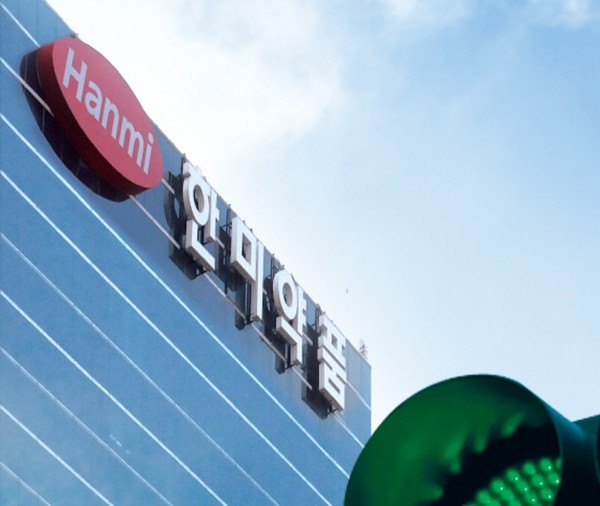Hanmi Pharmaceutical said that efpeglenatide, its long-acting diabetes biologic drug, significantly reduced incidences of major adverse cardiovascular events (MACE) and kidney disease in phase 3 clinical trials.

According to Hanmi, Sanofi presented the results of the global, large-scale cardiovascular clinical trial (AMPLITUDE-O) during the American Diabetes Association (ADA) Scientific Sessions on Tuesday.
The AMPLITUDE-O phase 3 clinical trial involved 4,076 patients with Type 2 diabetes or cardiovascular disease across 344 regions in 28 countries. Sanofi administered 4mg or 6mg of efpeglenatide or a placebo to patients weekly during the trial.
Sanofi confirmed a significant decrease in cardiovascular and kidney disease risk in Type 2 diabetes patients who received the 4 mg and 6 mg doses of efpeglenatide.
There was a 27 percent reduction in the incidence rate of major cardiovascular diseases and a 32 percent drop in kidney disease in the efpeglenatide group compared to the placebo group.
The company has published the results of the study in the New England Journal of Medicine.
“The Amplitude-O trial shows that efpeglenatide safely reduces major cardiovascular and renal outcomes in low and high-risk people with Type 2 diabetes while lowering glucose, blood pressure, and weight,” said Professor Naveed Sattar of the University of Glasgow.
Hanmi’s Chief Medical Officer Baek Seung-jae also said, “I would like to think that the decision to return the rights for efpeglenatide has provided us with a new opportunity to achieve innovation in other ways.”
Hanmi is focusing its capacities on expanding upon and realizing the potential of efpeglenatide, the efficacy of which has been demonstrated through large-scale, global phase 3 clinical trials, he added.
Efpeglenatide is a once-weekly GLP-1 receptor agonist drug that Hanmi developed as a treatment of diabetes mellitus. The company licensed out the treatment to Sanofi in 2015, but Sanofi returned the rights of efpeglenatide due to changes in the company’s business strategy. As a result, the rights currently belong to Hanmi.
Aside from the study confirming efpeglenatide’s efficacy in reducing incidences of MACE and kidney diseases, Hanmi also presented the results of another study on the effectiveness and safety of efpeglenatide in Type 2 diabetes patients, which involved another global phase 3 clinical trial (AMPLITUDE-M) with 406 Type 2 diabetes patients who failed to manage blood sugar through diet and exercise.
The study results confirmed excellent blood sugar control and weight loss when efpeglenatide was administered to Type 2 diabetes patients, and the company confirmed a maintained efficacy for an extended period.
At 30 weeks of treatment, when compared to the placebo group, patients across all dosage groups of efpeglenatide showed statistically significant improvement in HbA1c levels compared to those of the placebo group. In addition, patients in the 4mg and 6mg dosage groups also showed significant weight loss.
Hanmi also announced the results of four preclinical studies, including its research on LAPSGlucagon Analog, a long-acting glucagon-like peptide analog. Hanmi plans to share major ADA announcements on its website.
“Considering that drugs currently sold on the global market for metabolic diseases often possess the risk of cardiovascular disease following long-term observations, cardiovascular safety is crucial in strengthening a given drug’s global competitiveness,” Hanmi Pharmaceutical CEO Kwon Se-chang said.
With the demonstration of efpeglenatide’s safety regarding the risk of cardiovascular disease, as demonstrated in this large-scale clinical trial, Hanmi has found new business opportunities.”

